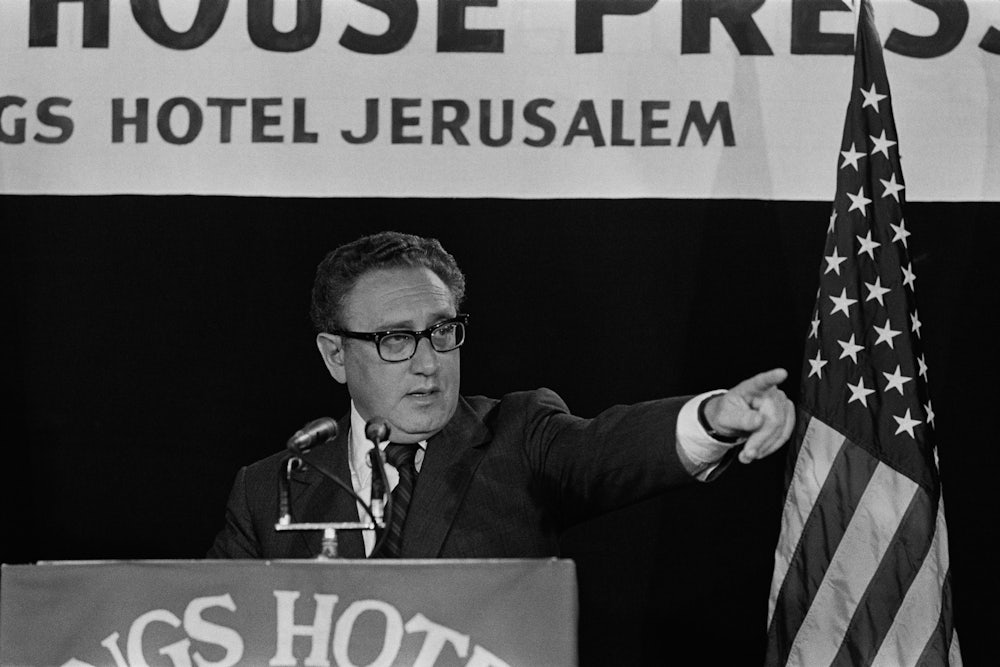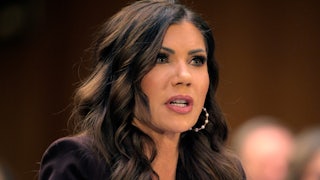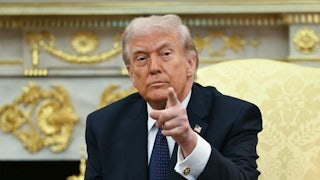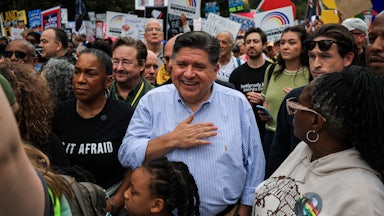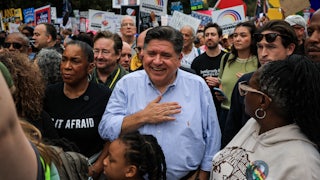I remember sitting with Calvin Trillin at Arthur Schlesinger’s 2007 memorial service back when, to our mutual horror, Henry Kissinger mounted the podium as an invited speaker. Typically, his talk was more about himself than about Arthur. Trillin turned to me and said, “He may have a big brain, but he’s a very small man.”
Distinct from his public role as a frequent proponent of mass murder, torture, and authoritarian rule both in and out of office, the private Kissinger was no picnic either. According to his former student and fellow policy maven Leslie Gelb, Harvard professor Henry Kissinger was “devious with his peers, domineering with his subordinates, obsequious to his superiors.” All of these qualities are evident in Kissinger’s dealings with both the leaders of Israel and their surrogates in the American Jewish community.
The question of Kissinger’s alleged antisemitism is a complicated one. Yes, he told a friend in the 1970s that Judaism “has no significance for me,” according to Walter Isaacson’s 1992 biography, and is also quoted as having said in 1972, “If it were not for the accident of my birth, I would be antisemitic.” Another gem from that year: “Any people who has been persecuted for two thousand years must be doing something wrong.”
But to be fair, these views were not as uncommon among German Jews in the United States as one might wish them to have been. One can find similarly disturbing quotes in the private discussions of say, the great pundit and political philosopher Walter Lippmann and the longtime New York Times publisher Arthur Ochs Sulzberger. When confronted with Richard Nixon’s frequently hysterical antisemitic rants about “dirty rotten Jews from New York” who dared to reveal the truth about the My Lai massacre in Vietnam in the Times or some such thing, Kissinger usually tried to placate the president without explicitly agreeing or disagreeing. But when he felt Jews, whether American or Israeli, were refusing to cooperate with his plans, he was more than happy to join in, once complaining to Nixon that he had “never seen such cold-blooded playing with the American national interest” as when American Jewish leaders supported Israel’s position over that of the Nixon administration. The Israelis at various times were “as obnoxious as the Vietnamese,” “boastful,” “psychopathic,” “fools,” “a sick bunch,” and “the world’s worst shits.” As for American Jewish leaders, “They seek to prove their manhood by total acquiescence in whatever Jerusalem wants.”
Kissinger was a Jew who found other Jews exceptionally annoying—none more so than Israelis, with whom he frequently negotiated but failed to get to do things his way. The question is, was he worse about Jews and Israel than about anyone else who refused to genuflect before what he understood to be his genius? To be fair to someone who really doesn’t deserve it, Kissinger, like Nixon, would tend toward churlish, racist reactions when anyone rebuffed him. When, for instance, Indian Prime Minister Indira Gandhi refused to go along with his plans for a secret opening to China, he informed the president that “well, the Indians are bastards anyway,” and Gandhi herself was “a bitch.”
But Kissinger also engaged in explicitly antisemitic actions himself. When, in September 1973, Nixon appointed him to be secretary of state, Kissinger thanked him for saying nothing about his “Jewish background.” And as he doled out jobs to his aides, he made certain to count the Jews to ensure there were not too many of them. He explained that while he knew that it required 10 Jews for a minyan (Jewish prayer service), he could not “have them all on the seventh floor.” Kissinger also once removed a counselor, good friend, and fellow German Jew, Helmut Sonnenfeldt, from a list of aides scheduled to accompany the president to Germany because he said, “I don’t think too many Jews should be around.” But here again, he was likely not acting out of personal anti-Jewish animus. Rather he was behaving cravenly in the face of what he judged to be the Jew-hatred of others, especially Nixon, who famously ordered an aide to count the number of Jews working in the Bureau of Labor Statistics.
For the purpose of history, the most important aspects of Kissinger’s hostility to Jews and Israel can be seen in his conduct related to the 1973 “Yom Kippur War.” Kissinger apologists have consistently attempted to give him the credit that belongs almost entirely to Jimmy Carter for the peace treaty between Israel and Egypt. Martin Indyk, a longtime diplomat and Kissinger acolyte, actually published a 688-page book titled Master of the Game, making exactly this comical claim.
The truth is that Kissinger’s machinations were at least partially responsible for the fact of the war itself. Egypt’s visionary leader Anwar Sadat made clear to Kissinger and company that he was interested in a peace agreement with Israel (and moving his allegiance from the Russians to the Americans). The Israelis expressed interest at the time, but Kissinger instructed them that they were “wasting time” in taking Sadat seriously. To make certain the Israelis went along with his plans, he secretly bribed them with a promise of over 100 U.S. Phantom fighter jets. His overture rejected, Sadat eventually decided that another war to avenge the humiliation of 1967 was his only choice to lay the groundwork for an eventual deal. Even Indyk, who treats Kissinger’s famous “shuttle diplomacy” between Israel and Egypt after the war as one of the great achievements of American diplomatic history, admitted in his book that Kissinger “might have averted the Yom Kippur War” by taking Sadat seriously earlier.
Kissinger also helped ensure that Israel would be unprepared for the Egyptian attack. According to Israeli Defense Minister Moshe Dayan’s secret testimony before Israel’s 1974 Commission of Inquiry, just before the war began, Kissinger warned Israel that if it wanted any help from the United States in the event of hostilities, then it should not make a preemptive strike against Egypt or Syria or to mobilize the reserve army before the war actually started. These warnings were given after Kissinger insisted that all other Americans leave the room and no notes be taken. Dayan then canceled his air force’s preemptive operation and objected to Golda Meir’s plan to mobilize the reserves. Kissinger is not known to have given any similar warning to the Egyptians. Indeed, according to Sadat’s memoirs, Kissinger actually encouraged the attack, via secret messages, in order to improve Egypt’s negotiating position in the war’s aftermath. To my knowledge, Kissinger never addressed this.
Kissinger wanted Israel to suffer a significant setback before it finally won the war. He succeeded at this at an enormous cost in lost lives on both sides. As the Egyptian army marched toward Tel Aviv, he informed Sadat and company that the United States was doing merely the minimum to aid Israel that was possible under the circumstances. After eight days of fighting, however, Nixon insisted, over Kissinger’s objections, on implementing a massive emergency weapons airlift. He did this despite Kissinger’s warning that victory would make Israel “even more impossible to deal with than before.”
Kissinger came in for extremely harsh criticism from some American Jews in this period. Hans Morgenthau, a respected international relations scholar whom Kissinger personally revered, went so far as to compare the pressure he was applying to Israel to the way the West had treated Czechoslovakia in 1938 when it was threatened by Hitler. To try to disarm such critics, Kissinger undertook a series of off-the-record meetings with Jewish writers and intellectuals and another with leaders of Jewish organizations.
The former group spanned the political spectrum, from the democratic socialists Irving Howe and Michael Walzer to neoconservatives such as Seymour Martin Lipset and Norman Podhoretz. There was no room for disagreement between the two poles, however, because the only issue discussed was Israel’s security and how to best ensure it. Kissinger posed as Israel’s savior and warned of a noticeable turn against all-out support for Israel in Congress. (Actually, the opposite was true. Congress was far more pro-Israel than Kissinger was.) He pointed out that, given the “critical opposition” to Israel within the international community, the perfidy of the “European vultures,” and the likely success of the “extremely effective” OPEC oil embargo, which would give the Arab world more leverage over the West and turn consumers in both the U.S. and Europe against Israel. Israel was “in great danger.” What he needed, he explained, was for influential American Jews to “privately … make clear to the Israelis that you understand the situation.” The meeting broke up, according to the notes taken by an aide to Kissinger, “with warm expressions of gratitude.”
To the leaders of Jewish organizations, Kissinger went further. He complained that he could not serve Israel’s interests—and prevent another attack—“if the Jewish community starts climbing walls every time I am seen smiling with Sadat.” He was rewarded with a pledge from Max Fisher, a Republican funder, that Jews got the message: “The Jewish community is becoming conscious of the need for a strong defense posture.” When one participant did try to raise the question, asking, “Is peace possible with the Palestinians?” Kissinger replied, “The Palestinians have to get a little hungrier.”
As Israel continued to resist his plans for disengagement in the Sinai and the Golan Heights, Kissinger convinced President Gerald Ford in March 1975 to order a “reassessment” of U.S. foreign policy in the region, which included a deliberate slowdown and deferral of arms deliveries pending its outcome. He announced that “every department is to be instructed to end the special relationships [with Israel].” Acting as much on the basis of paranoia and pique as on principle or policy, he accused American Jews of “conducting a systematic campaign” to undermine his authority and added to Ford, “I think the Israelis are after me.”
Alas, Ford and Kissinger’s reassessment would be a short one. With lightning speed, Israel’s Washington lobbyists circulated a letter signed by 76 senators demanding that the president be responsive to Israel’s “urgent military and economic needs,” and “make clear, as we do, that the United States, acting in its own national interests, stands firmly with Israel in the search for peace in future negotiations.”
Next came Congress’s cancellation of Ford and Kissinger’s planned sale of defensive anti-aircraft weapons to Jordan. Should the pro-Israel message of that move somehow be unclear, Bertram Gold, executive director of the American Jewish Committee, warned that “if 1975 turns out to be the year of intense pressure on Israel, there will be a very serious reaction among American Jews. We will go directly to Congress, and 1976 [an election year] is not that far away.”
Kissinger was predictably furious. He told one aide that what was needed was “psychological warfare against Israel ... which has treated us as no other country could” and threatened privately, that “if the Jewish Community comes after us, we will have to go public with the whole record.” Resistance, he promised, would be futile, as he instructed his State Department colleagues that “we are to see it through and even if they win, it will do so much damage to the Jewish community here that it may never recover.”
Kissinger’s anti-Israel animus hardly stopped there. He did everything he could to undermine then-U.N. Representative Daniel Patrick Moynihan’s campaign against the infamous “Zionism is Racism” General Assembly Resolution, grumbling, “We have been overdoing the defense of Zionism as a philosophy and a system. Ask Moynihan to cut it back. We are conducting foreign policy. This is not a synagogue.”
He also told Meier, according to Oval Office recordings made while Nixon was president, that “the emigration of Jews from the Soviet Union is not an objective of American foreign policy.” He added: “And if they put Jews into gas chambers in the Soviet Union, it is not an American concern. Maybe a humanitarian concern.”
Despite this egregious personal and political record on matters Jewish, upon the announcement of his death, the ADL, which once gave Kissinger its “ADL Democratic Legacy Award,” praised Kissinger (apparently unironically) for being “unapologetic about his heritage and his embrace of the importance of American global power and democratic values.” Virtually every major American Jewish organization issued similarly sycophantic tributes. How to explain this? Well, as Kissinger once responded to a Nixonian rant about “Jewish traitors” and the like, “There are Jews and there are Jews.”
